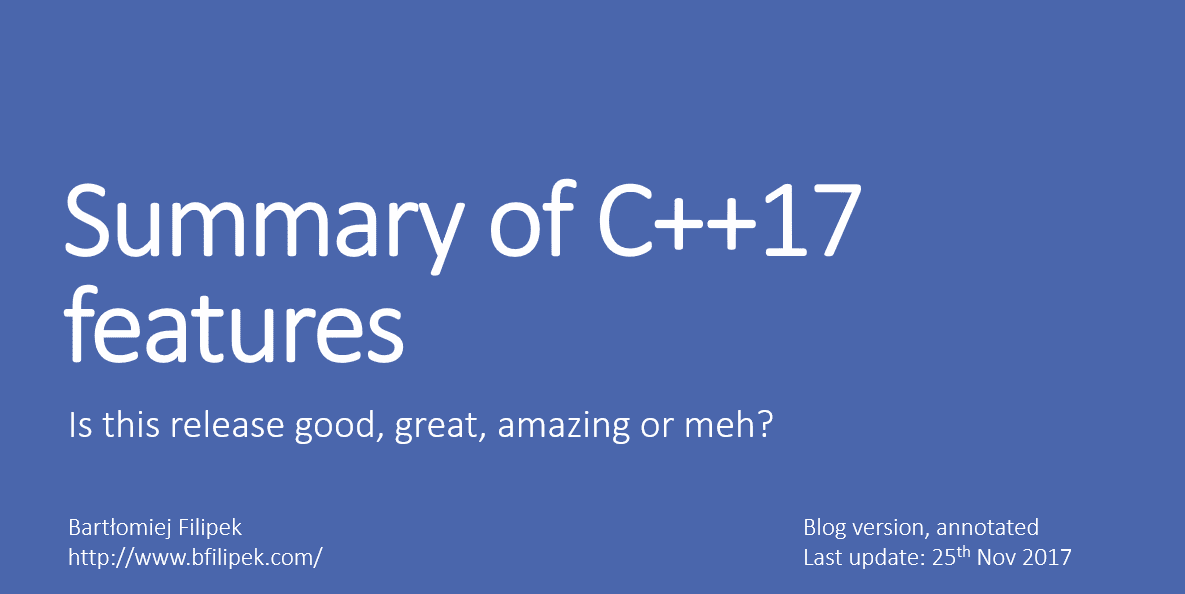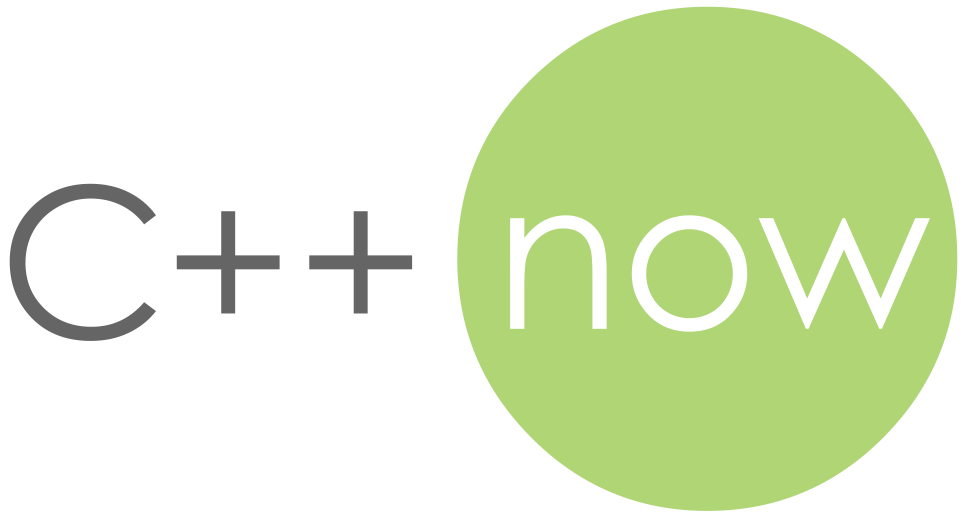C++ Day 2017--Marco Arena
My report on the last C++ event we organized in Italy:
C++ Day 2017
by Marco Arena
From the article:
At the beginning of December, on the 2nd, the Italian C++ Community hosted the C++ Day 2017 and about 110 people gather together...

 Slides from a talk about C++17 features
Slides from a talk about C++17 features 
 A new version is here!
A new version is here!